Posts Tagged ‘Burma Army’ (238 found)
Legal Memorandum: War Crimes and Crimes Against Humanity in Eastern Myanmar
In January 2011, the Harvard Law School International Human Rights Clinic (“the Clinic”) began to investigate the actions of the Myanmar Army during a military offensive in eastern Myanmar (“the Offensive”) that began in late 2005 and lasted approximately three years. The Clinic sought to determine whether violations of international criminal law occurred during the Offensive, and whether there exist reasonable grounds to assert that individual military officers could be held responsible for those crimes. The Clinic’s investigation focused specifically on the conduct of two military units—Southern Regional Military Command (“Southern Command”) and Light Infantry Division 66 (“LID 66”)—in Thandaung Township, Kayin State. […]
• • •Protection and Security Concerns in South East Burma/ Myanmar
The peace process in Burma/Myanmar1 is at a critical juncture from which it could evolve into a transformative national dialogue or splinter into a divisive charade. While hopes for substantive and inclusive discussion about structural injustice remain, ongoing militarisation and attacks by the national armed forces2 are undermining the confidence of ethnic stakeholders. This report seeks to highlight the protection and security concerns of conflict-affected communities. […]
• • •Afraid to Go Home: Recent Violent Conflict and Human Rights Abuses in Karen State
The following report was prepared by Karen Rivers Watch (KRW), a coalition of six Karen organizations focused on the environment, women, youth, human rights and development issues. More information about KRW is provided on page 14.
This report is based on field interviews with local villagers and leaders of Karen armed groups, as well as media coverage of the recent conflict. It describes events that led to recent armed conflict between the Democratic Karen Benevolent Army (DKBA) and the combined force of the Burmese Army (BA) and Border Guard Force (BGF) in Karen State. Next, the report gives a detailed account of clashes that occurred along the Salween River in Hpa-an and Hpapun (Mutraw) districts. […]
• • •New Report Documents Recent Violent Conflict in Karen State
New Report Documents Recent Violent Conflict in Karen State
More than 2,000 villagers were displaced in October as fighting resumed in Karen State, the site of the world’s longest-running civil war. A report released today by Karen Rivers Watch (KRW) reveals that the outbreak of fighting – after two years of ceasefire negotiations […]
Par Gyi Killing Highlights Continuing Impunity in Southeast Myanmar
The recent killing by the Myanmar Army of the journalist Aung Kyaw Naing, also known as Par Gyi, highlights the need to end impunity in Southeast Myanmar, according to the Karen Human Rights Group (KHRG), a leading community based organisation in the region. […]
• • •PRESS RELEASE: Harvard Law School Implicates Senior Myanmar Officials in War Crimes and Crimes Against Humanity
Yangon, Myanmar-A four-year investigation by the International Human Rights Clinic at Harvard Law School has found that the Myanmar military committed war crimes and crimes against humanity in 2005-2006, and that perpetrators, including the current Home Affairs Minister, continue to serve at the highest levels of the country’s government […]
• • •Myanmar: End Military Attacks On Kachin And Shan Civilians
(Yangon, November 6, 2014)— The Myanmar Army has targeted, attacked, and killed civilians with impunity in ongoing fighting in Kachin State and northern Shan State, Fortify Rights said in a briefing published today. The government of Myanmar should act to end such attacks and hold perpetrators accountable […]
• • •New National Land Use Policy Must Reflect the Concerns of those Affected
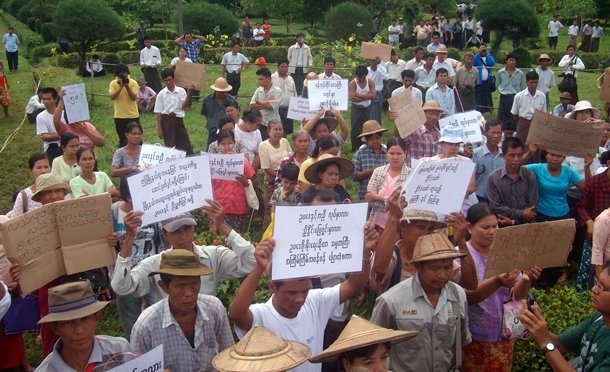 The Burma Government released its draft land use policy document and opened it up for consultations with the public. Despite this positive sign, the time for consultations is inadequate with no proper mechanism or space created for the meaningful participation of affected communities in order for their concerns to be reflected in the draft. The draft document itself has been heavily criticized for serving to further empower investors over small scale farmers.
The Burma Government released its draft land use policy document and opened it up for consultations with the public. Despite this positive sign, the time for consultations is inadequate with no proper mechanism or space created for the meaningful participation of affected communities in order for their concerns to be reflected in the draft. The draft document itself has been heavily criticized for serving to further empower investors over small scale farmers.
Since the beginning of the reform process in 2011, land grabbing, a practice that the previous military regime engaged in regularly, has hit new heights as a flurry of investors seek opportunities in previously untapped markets and the Burma Government liberalizes the economy. A prime example of this is the Dawei Special Economic Zone (SEZ) Project, a joint Thailand–Burma Government initiative that is seeking private investment to create one of the largest industrial zones in Asia. A report released by Dawei Development Association on 21 October 2014 highlights how 20-36 villages will be negatively affected. Concerns iterated by the local communities show that they have “lost farmlands and natural resources that are vital to their livelihoods, without prior information.” Furthermore “there was no meaningful consultation, and a deeply flawed compensation process.”
Land grabbing is often done with protection from the military, or by the military itself, for factories, infrastructure projects, mono-crop plantations, or military bases, and as with the Dawei SEZ case, usually without adequate or indeed, any compensation. It is a nationwide problem, both in ethnic areas, as documented by the Human Rights Foundation of Monland and Karen Human Rights Group, while in central Burma and delta areas, land grabbing is common place. Given that around 70% of the population of Burma is engaged in agriculture, and it is agricultural lands that are most often confiscated, it is one of the most pressing issues for Burma today […]
• • •Kachin Civil Society Groups Rally for Two Jailed IDPs
Kachin civil society groups held a public gathering in Shwezet church in the Kachin State capital Myitkyina on Tuesday to show their support for two Kachin IDPs, Brang Yung and Lahpai Gam, who were arrested by Burma Army soldiers in mid-2012 and allegedly severely tortured. […]
• •
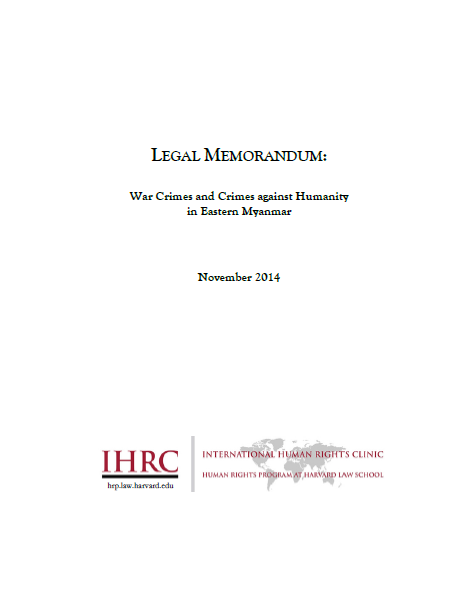
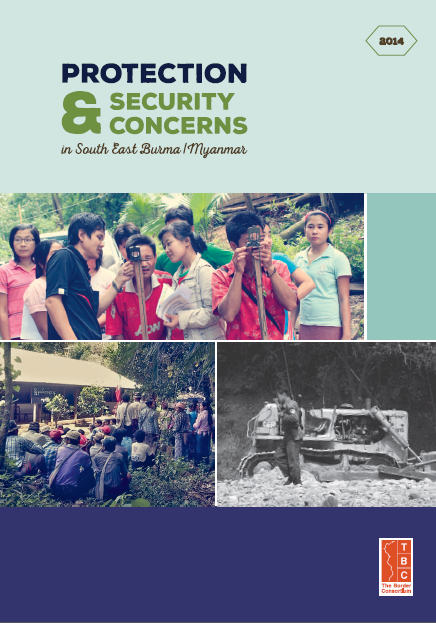
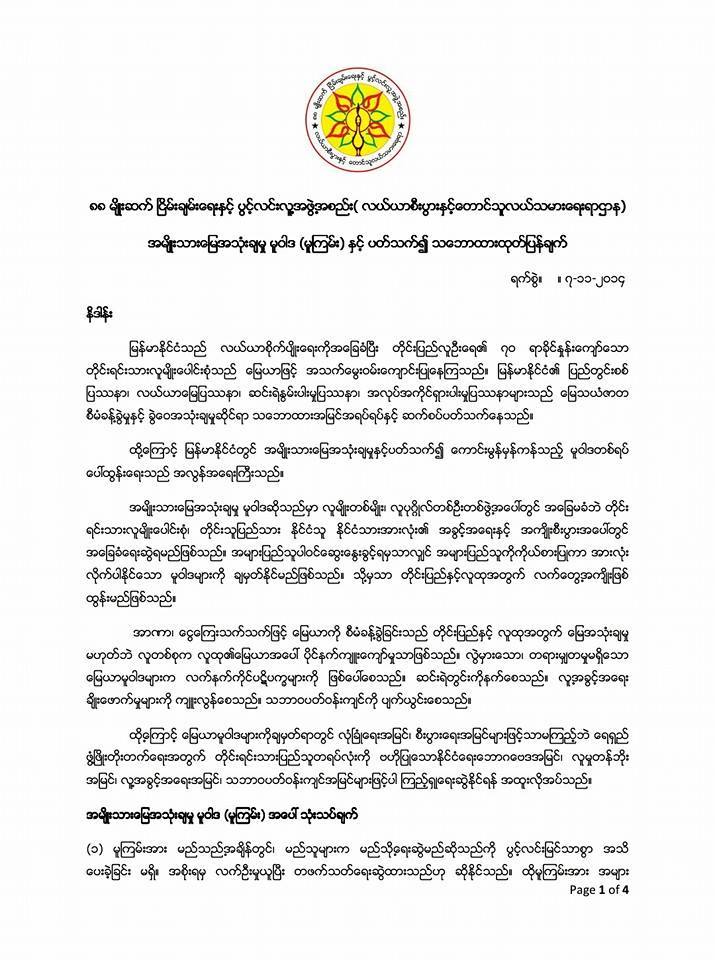
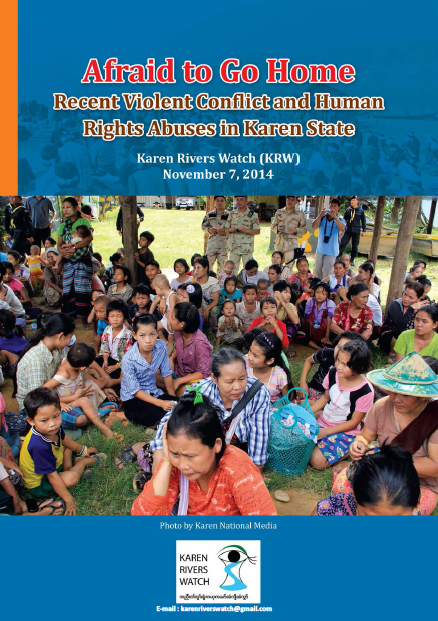








 All posts
All posts